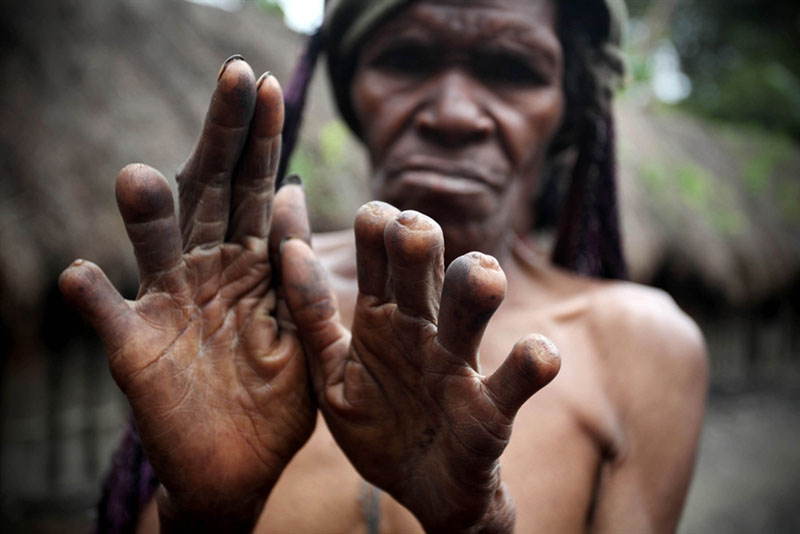By Daniel Edu
The Dani tribe is renowned for its distinctive culture and traditions, one of which stands out as extraordinary and peculiar to outsiders: the practice of finger amputation as a form of mourning.
When a beloved member of the community or a loved one passes away, the women of the Dani tribe engage in a ritual that may appear extreme to outsiders but holds profound significance within their cultural heritage.
In this solemn act, they amputate one or more of their fingers as a symbolic expression of mourning, intended to ward off malevolent spirits and assist the departed soul in its journey to the afterlife.
How is the ritual performed?
The ritual of finger amputation is typically overseen by a female elder of the tribe. Using sharp tools, often crafted from stone, a sharp axe, or a knife, the elder severs the upper joint of the woman’s finger. To staunch the bleeding, the wound is then cauterized using a hot stone or a piece of metal. Although the process is painful and carries the risk of infection, the women of the Dani tribe typically endure the pain without complaint.
Notably, while the ritual is predominantly performed on women, men can also partake in it.
The number of fingers amputated varies based on the closeness of the relationship to the deceased. For instance, a woman may amputate one finger for the loss of a parent and two fingers for the loss of a child.
To express their grief further, the Dani people cover their faces with ashes and clay. Some individuals even opt to amputate their ears, while others immerse themselves in river sludge for a week without bathing.
The significance of the ritual
For the Dani people, finger amputation represents a form of sacrifice. It serves as both a symbol of grief and loss and a means for the women of the Dani tribe to establish a connection with their ancestors.
Is the ritual still practiced today?
While the ritual of finger amputation is still observed by some members of the Dani tribe, it has become less prevalent over time. Several factors have contributed to this decline, including the influence of modernization, the spread of Christianity, and the efforts of the Indonesian government to discourage the practice.





